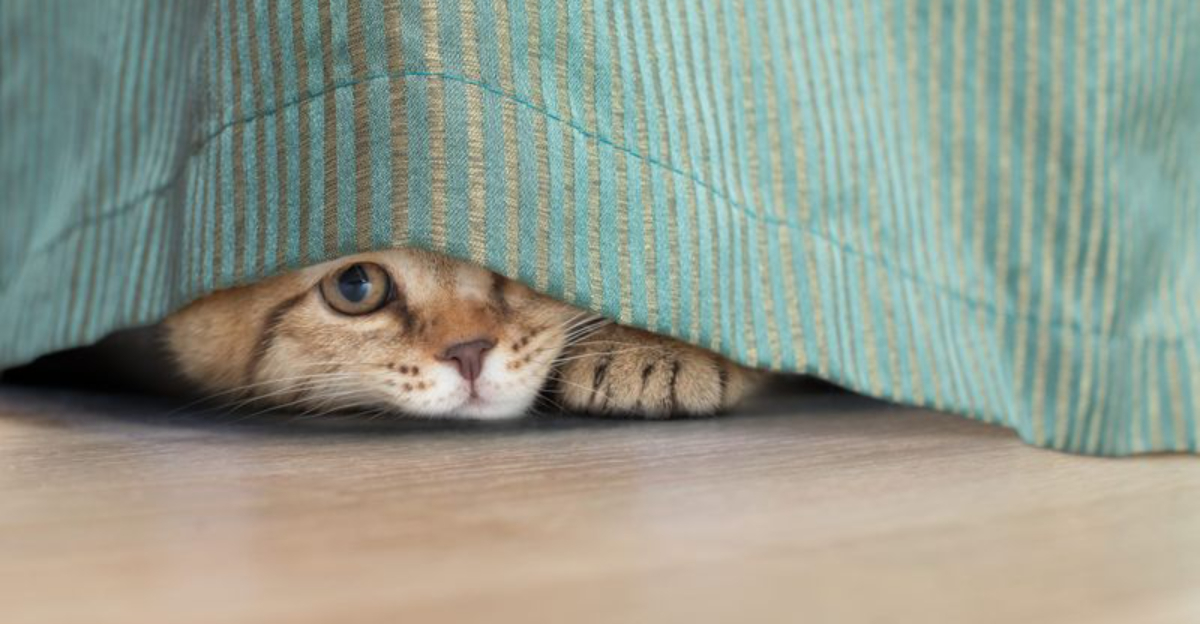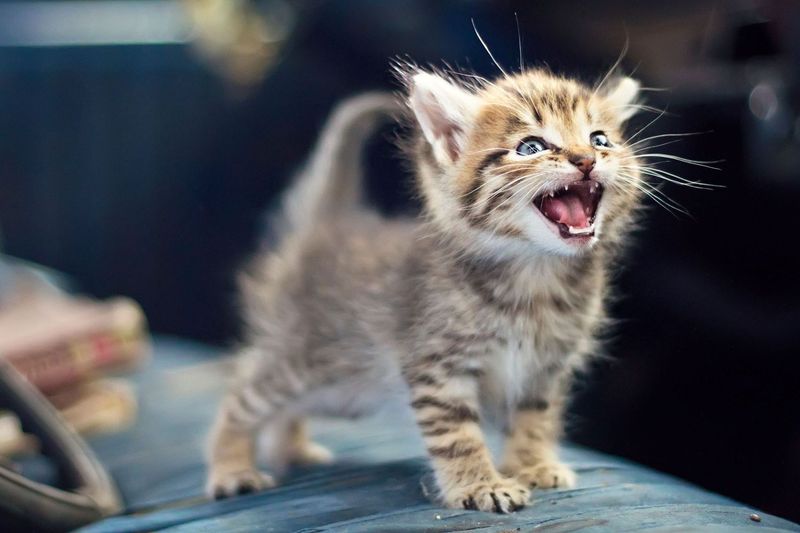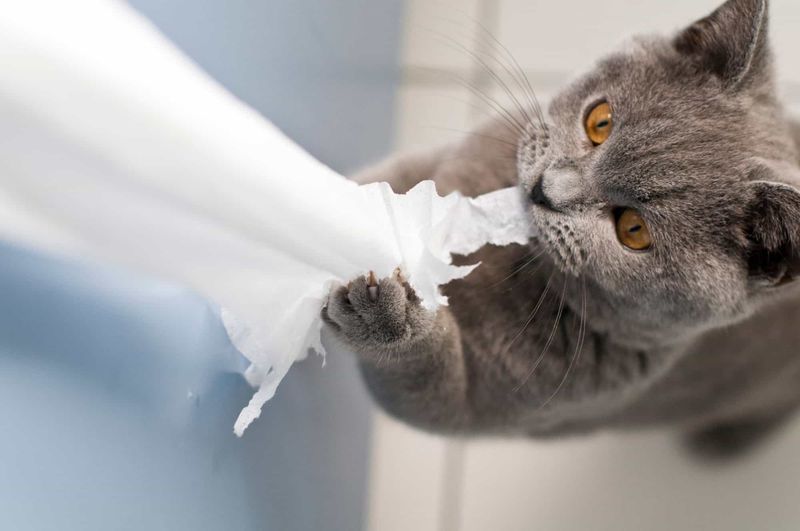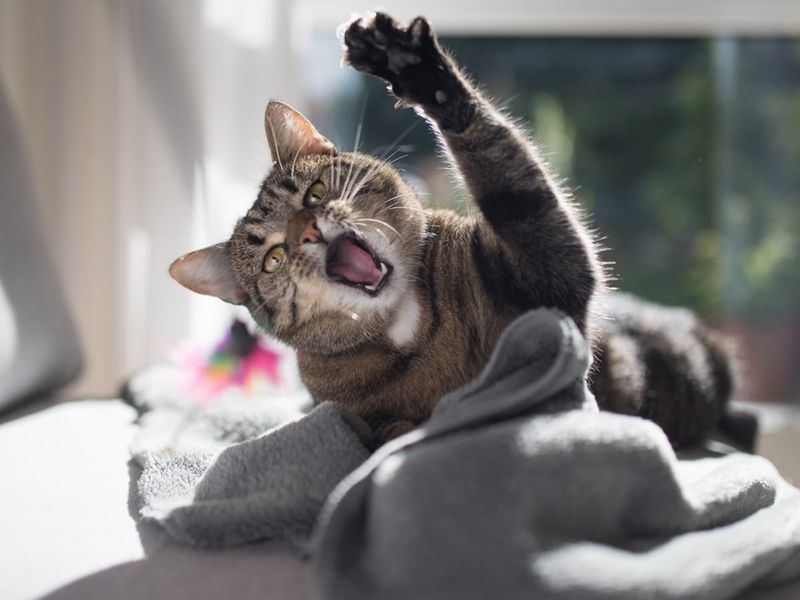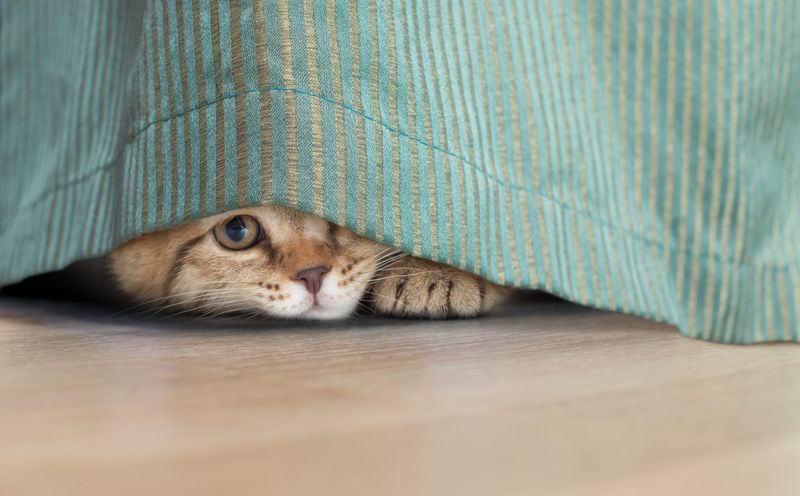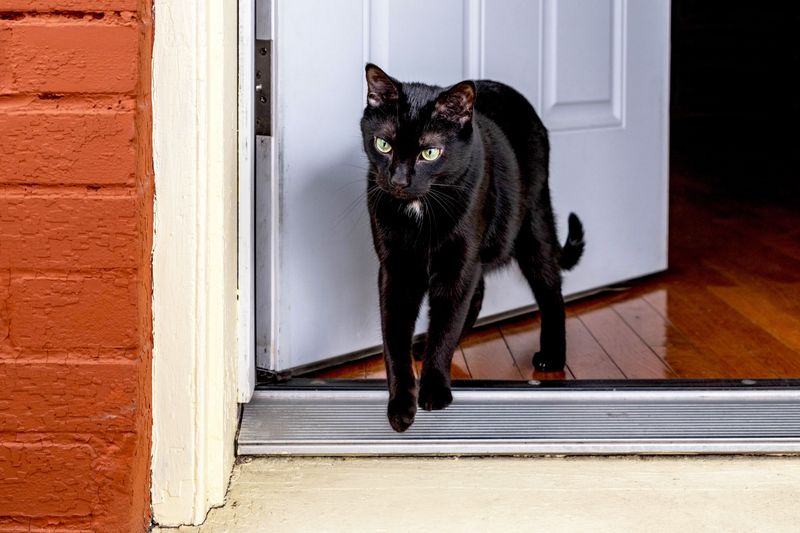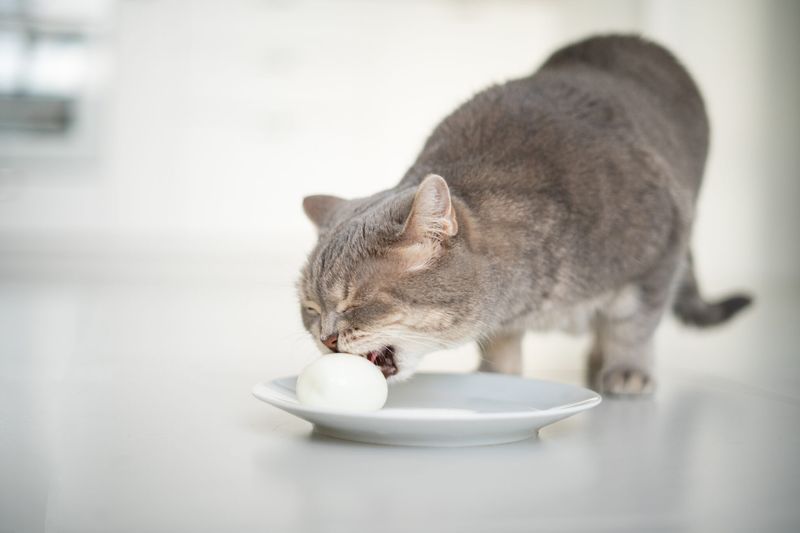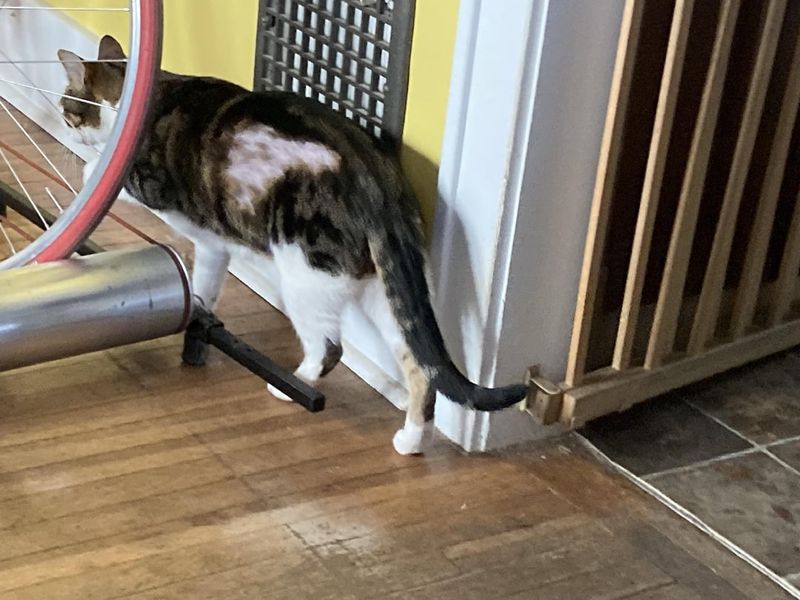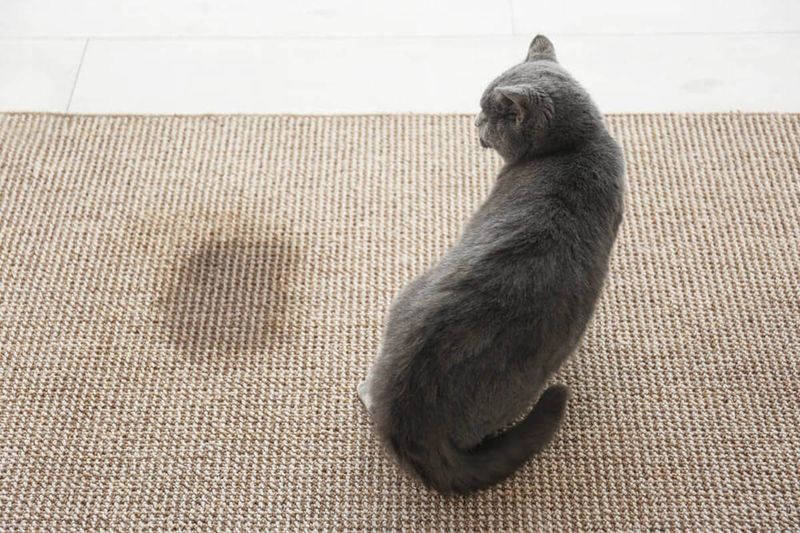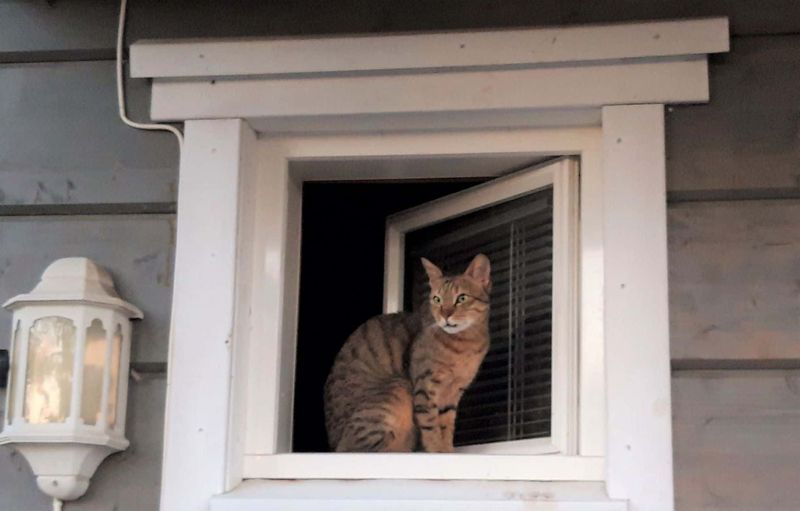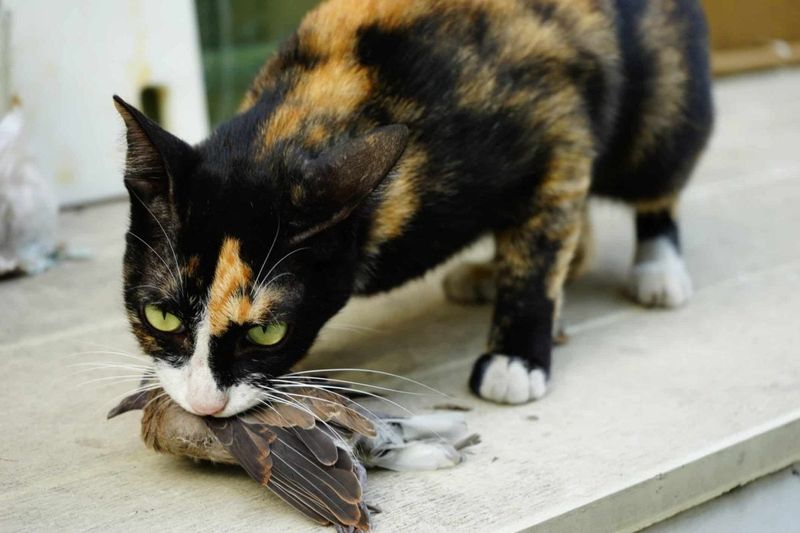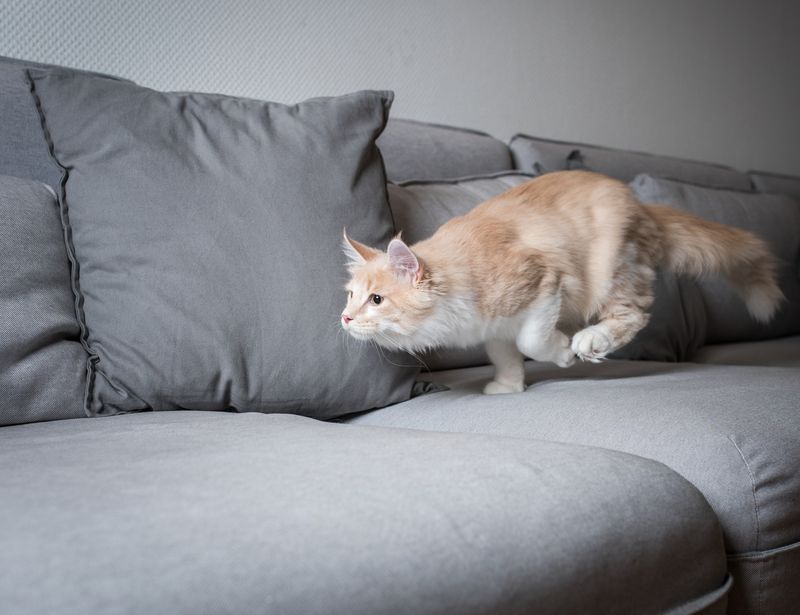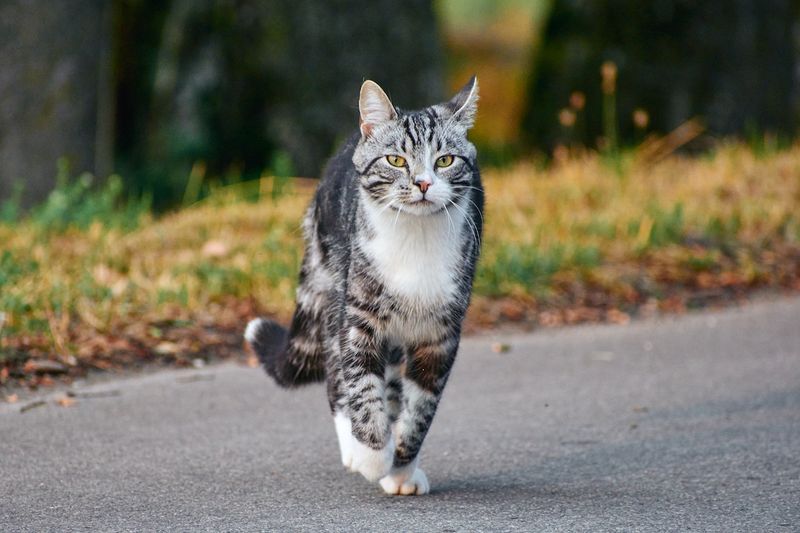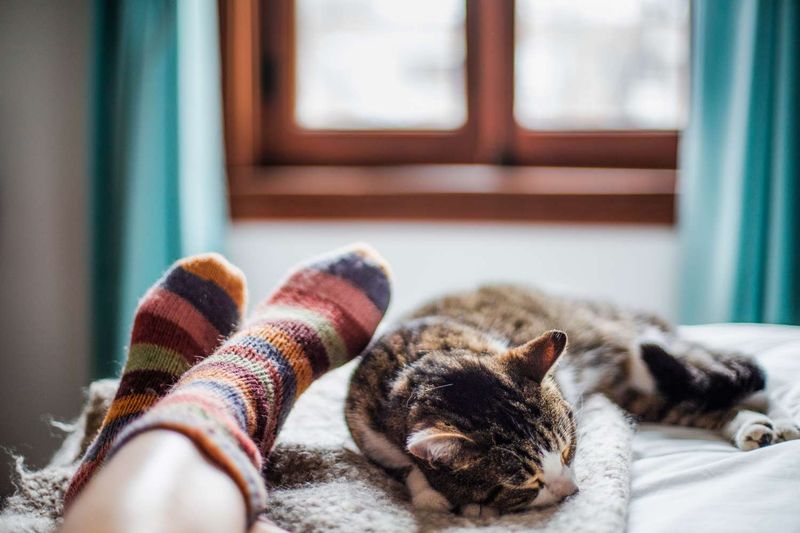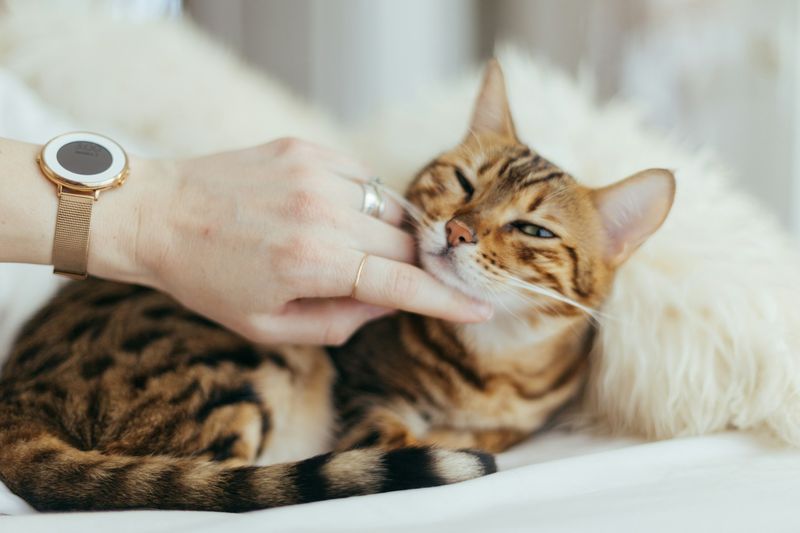📖 Table of Content:
- 1. Excessive Meowing or Yowling
- 2. Destructive Behavior
- 3. Sudden Aggression
- 4. Hiding More Often
- 5. Avoiding You Completely
- 6. Changes in Appetite
- 7. Fur Pulling
- 8. Ignoring the Litter Box
- 9. Lethargy or Lack of Interest
- 10. Overly Clingy Behavior
- 11. Sudden Fearfulness
- 12. Bringing You “Gifts” More Often
- 13. Excessive Night Activity
- 14. Trying to Escape or Run Away
- 15. Sleeping Patterns
- 16. Lack of Purring or Affection
Cats may be independent creatures, but they have deep emotional needs that require attention and care. While they may not express their feelings in obvious ways like dogs, cats form strong bonds with their owners and thrive on companionship. Ignoring your cat’s emotional needs, even unintentionally, can lead to stress, anxiety, and behavioral issues. If your cat is acting differently or showing signs of distress, they may be trying to tell you something important.
Many cat owners assume that as long as their pet has food, water, and a clean litter box, they’re content. However, emotional well-being is just as crucial as physical health. Cats need interaction, stimulation, and affection to feel secure and happy. When these needs go unmet, they may begin displaying subtle or even extreme behavioral changes to communicate their loneliness or frustration. Recognizing these signs early can help prevent deeper emotional issues.
We’ll look into 16 signs that your cat may be feeling ignored and what you can do to ensure they feel loved and valued. Whether your cat has become clingy, withdrawn, or destructive, these behaviors are often their way of asking for more attention. By understanding these signs and making small adjustments, you can strengthen your bond and improve your cat’s overall well-being.
1. Excessive Meowing or Yowling
If your cat starts vocalizing more than usual, it might be trying to get your attention. Cats meow to communicate, and excessive meowing could mean they’re feeling neglected or bored. Consider the times they meow and what might be causing it. Perhaps they want more playtime or are missing your usual interactions. Addressing their needs can help reduce this behavior. Spend time engaging in activities they enjoy, or even just sitting with them. This change alone may calm their vocalizations, making them feel more secure and loved.
2. Destructive Behavior
Destructive behavior like scratching furniture or knocking over items often stems from frustration. This could be due to a lack of stimulation or attention. Provide your cat with toys, scratching posts, and interactive play sessions to channel their energy positively. These measures can prevent damage to your home while keeping your cat entertained. Remember, such behavior isn’t malicious; it’s a call for engagement. Creating an enriching environment can make a significant difference, easing their stress and improving their mood.
3. Sudden Aggression
If your cat suddenly becomes aggressive, it might be experiencing stress or emotional neglect. Cats may bite, scratch, or swat when they feel anxious or ignored. Understanding the cause of their aggression is vital. It may relate to changes in their environment or a lack of attention. Offering consistent affection and creating a stable routine can help. Consult a veterinarian if the aggression persists, as it might indicate an underlying health issue.
4. Hiding More Often
A cat that hides more than usual may be feeling depressed or ignored. Hiding is a natural response to feeling unsafe or stressed. Explore what might be causing this behavior, such as new household changes or reduced interaction. Providing a quiet and comforting space can help them feel secure. Additionally, try to spend more quality time with your cat, reassuring them that they are loved and valued.
5. Avoiding You Completely
Did your furry friend start avoiding you altogether? It could be a sign of emotional neglect. Cats may act distant and refuse to interact when they feel overlooked. Building trust again requires patience. Engage in gentle interactions, like sitting near them quietly or offering treats. Respect their space and allow them to come to you when they feel comfortable. Over time, this approach can help rebuild the bond and show your cat they are an important part of your life.
6. Changes in Appetite
A change in your cat’s eating habits, whether eating too little or overeating, can indicate emotional distress. This behavior often reflects anxiety or depression. Monitor their diet and see if other signs of neglect are present. Encouraging regular meal times and offering balanced nutrition can help. If the issue persists, consulting a vet is essential to rule out any health concerns. Addressing the emotional cause can foster a healthier appetite and overall well-being.
7. Fur Pulling
Over-grooming or fur pulling is often a stress response in cats, leading to bald spots or irritated skin. This behavior may stem from emotional neglect or environmental stressors. Identify and alleviate potential stressors in your cat’s life. Ensure they have a peaceful environment and plenty of positive interactions. Providing soothing activities like petting or gentle brushing can also help reduce grooming compulsions. If the behavior continues, professional advice may be needed to explore deeper emotional or health issues.
8. Ignoring the Litter Box
Keeping the litter box clean and placing it in a quiet, easily accessible spot can make a difference. Any recent changes in the household should also be considered, as they may contribute to your cat’s behavior. Offering reassurance and dedicating more quality time to your cat can help restore their normal habits. Engaging them in interactive play and providing a consistent routine can also reduce stress and encourage proper litter box use. If the issue persists, consulting a veterinarian is essential to rule out any underlying medical concerns and ensure your cat’s well-being.
9. Lethargy or Lack of Interest
Cats that suddenly become lethargic or lose interest in play may be feeling emotionally neglected. This behavior can indicate sadness or a lack of stimulation. Engage them with interactive toys or new activities to spark their interest. Sometimes, just spending time together in a relaxed setting can lift their spirits. Monitor their behavior and consult a vet if lethargy persists, as it might be a sign of health issues. Addressing their emotional needs is key to keeping them happy and active.
10. Overly Clingy Behavior
Clingy behavior often arises from feelings of insecurity or a strong desire for attention. Engaging in regular playtime and cuddle sessions can help reassure your cat that they are loved and valued. While providing affection is important, it’s also essential to encourage independence by offering stimulating activities, such as puzzle toys or interactive feeders, when you’re occupied. Creating a routine that includes both bonding time and self-entertainment opportunities can help your cat feel more secure. Ensuring they have cozy resting spots and safe exploration areas can further boost their confidence. Striking this balance allows your cat to develop independence while still feeling emotionally fulfilled.
11. Sudden Fearfulness
Cats that start acting skittish or jumpy may be experiencing anxiety due to emotional neglect. Fearfulness can arise from sudden changes in their routine or environment. Creating a stable and comforting space can help ease their anxiety. Gradually reintroduce regular activities, offering treats and calm interactions. Understanding their triggers is also vital to preventing future stress. Building a sense of security takes time but is essential for their emotional well-being.
12. Bringing You “Gifts” More Often
When a cat brings you “gifts” like dead prey or toys, it is often their way of seeking interaction and attention. This behavior may signal that they feel overlooked or want to share their experiences with you as a sign of trust. Acknowledging their efforts with positive reinforcement and actively engaging in play with the items they bring can make them feel appreciated. Encouraging interactive play sessions and providing mentally stimulating toys can help fulfill their instinctual needs. This response not only strengthens your bond but also reassures your cat of their important role in your life. Understanding these offerings as an expression of affection and engagement can help you create a deeper connection with your pet. By responding with patience and enthusiasm, you can reinforce their sense of security and belonging.
13. Excessive Night Activity
Increased energy and disruptive behavior at night can signify loneliness or boredom. Cats are naturally nocturnal, but excessive activity may point to unmet needs. Providing evening play sessions can help expend their energy and fulfill their social desires. Establishing a calming bedtime routine with them can also be beneficial. Ensuring they have stimulating toys and activities during the day can reduce nighttime restlessness. Addressing these needs helps them feel content and less isolated.
14. Trying to Escape or Run Away
This behavior is often a sign of boredom or a lack of engagement in their indoor environment. Providing a variety of interactive toys, climbing structures, and play sessions can help keep them mentally and physically stimulated. If your cat shows a strong desire to explore outdoors, consider offering supervised outdoor time through a secure enclosure or leash training. These safe alternatives allow them to satisfy their curiosity without the risks associated with free roaming. Ensuring your home is enriching and filled with activities can help curb their urge to escape. By understanding their need for exploration and providing safe, engaging options, you can create a fulfilling environment that reduces their desire to run away.
15. Sleeping Patterns
Changes in sleep patterns often indicate stress, depression, or a lack of stimulation in their daily routine. Observing their behavior and incorporating more playtime, affection, and engagement can help restore balance. Providing a cozy and quiet sleeping space can also promote a sense of security and encourage more restful sleep. If their sleep disturbances persist, a veterinary checkup is essential to rule out underlying health issues. Ensuring your cat feels mentally stimulated and emotionally fulfilled during their waking hours can help regulate their sleep cycle. A well-balanced routine that includes interaction, play, and relaxation will contribute to a happier and healthier cat.
16. Lack of Purring or Affection
A sudden lack of affection can indicate emotional neglect, stress, or discomfort in their environment. Rebuilding your bond requires patience and gentle, consistent interactions to help them feel safe and valued. Engaging in activities they enjoy, such as playing, petting, or offering treats, can encourage them to seek closeness again. Avoid forcing affection; instead, allow them to come to you at their own pace. Over time, as they regain trust and feel reassured of your love, their affectionate behavior should return. Strengthening this connection through positive reinforcement and a stable routine will help them feel more secure and emotionally fulfilled.
